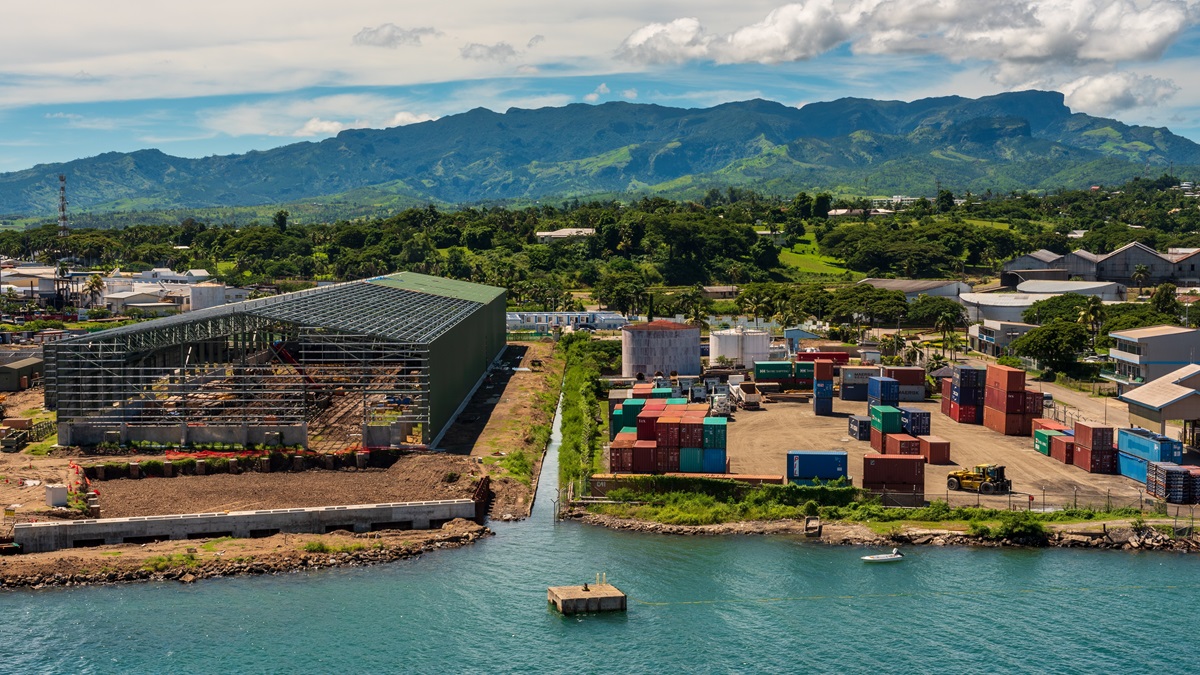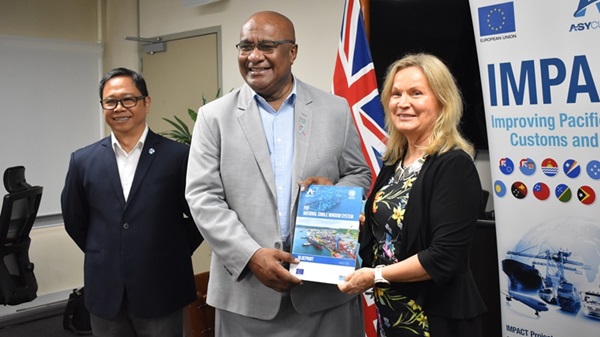The UNCTAD-backed system will be a one-stop-shop for traders, customs and other government agencies in Fiji to clear consignments and ease trade.
© Shutterstock/Joe Benning | Lautoka, the second largest port of entry of Fiji.
UNCTAD and its partners on 25 October unveiled a blueprint for developing and implementing a future electronic single window system in Fiji.
“Today marks a significant milestone in Fiji's pursuit of streamlined and efficient international trade, as well as our commitment to modernize trade operations,” said Fiji's Deputy Prime Minister Manoa Kamikamica, who also leads the Ministry for Trade, Co-operatives, Small and Medium Enterprises and Communications.
The single window system, supported by UNCTAD’s Automated System for Customs Data (ASYCUDA) technologies, helps connect various government agencies responsible for approving the release of goods from customs, enabling time and cost savings for traders.
The plan is a joint effort by ASYCUDA – UNCTAD’s customs automation programme – in collaboration with the Fijian government and business community.
It seeks to optimize Fiji’s existing capabilities in using UNCTAD’s latest customs management software, ASYCUDAWorld, which automates import and export clearance processes and allows for pre-arrival processing, post-clearance auditing and expediting shipments.
Implementing an electronic single window also helps reduce paper usage and carbon emissions, as traders can envisage fewer physical commutes to clear consignments at different government offices.
Currently, 11 countries are running an electronic single window based on ASYCUDA technology – Barbados, Burundi, Comoros, Jamaica, Kazakhstan, Rwanda, Timor-Leste, Turkmenistan, Uganda, Vanuatu and Zimbabwe.
‘IMPACT’ project for inclusive trade
The blueprint for Fiji is part of a four-year, joint UNCTAD-European Union (EU) project, entitled “Improving Pacific Islands Customs and Trade” (IMPACT), running through 2025.
It seeks to optimize border and customs procedures of Pacific Island countries, as well as boost the region’s economies by facilitating regional and international trade.
At the handover ceremony, Erja Askola, deputy head of the EU delegation for the Pacific, said that “When implemented, this blueprint of an electronic single window system, designed by UNCTAD, will tremendously facilitate Fiji’s trade with the world.”
Tangible results from long-standing partnership
In February 2017, the Government of Fiji took a significant step towards modernizing its trade operations by ratifying the World Trade Organization’s Trade Facilitation Agreement (TFA).
Since then, efforts to establish a single window system to streamline and simplify Fiji’s trade procedures have taken on heightened significance.
The Pacific island nation has been running UNCTAD’s ASYCUDA software since 1998.
Thanks to an upgrade to ASYCUDAWorld in 2015, the average customs clearance formalities for imports or exports went down from 35 to 10 steps.
From 2015 to 2022, Fiji saw import and export transactions increase in value by 44% and 21% respectively. Its customs revenue also shot up by 17% between 2016 and 2018.
According to the 2023 UN global survey on digital and sustainable trade facilitation, Fiji has implemented 52% of the measures outlined in the TFA concerning global paperless trade – up from 35% in 2015.
“UNCTAD's long-standing partnership with the Government of Fiji has time and time again led to improvements in the country's ability to engage in international trade,” said Shamika N. Sirimanne, UNCTAD’s technology and logistics director.
“We stand ready to support Fiji and other developing countries to realize the benefits that an electronic single window based on ASYCUDA technology can bring. I would encourage countries to adopt single window systems to improve connectivity between government departments and make the clearance of imports and exports faster, cheaper and easier,” Ms. Sirimanne added.
The benefits of implementing an electronic single window
Government:
- Streamlines trade procedures and reduces red tape
- Improves transparency and reduces corruption
- Facilitates inter-agency cooperation and coordination
- Enhances revenues through more efficient tax collection
Business:
- Reduces the time and cost for companies adhering to trade regulations
- Improves predictability and reliability of trade procedures
- Increases competitiveness by reducing barriers to trade
- Enhances market access, domestically and internationally
Society:
- Creates job opportunities and boosts economic growth
- Improves living standards through increased trade and better access to goods and services
- Enhances consumer protection by improving information about imported goods
Environment:
- Supports sustainable trade by facilitating implementation of environmental regulations
- Promotes use of cleaner technologies and environmentally friendly products
- Encourages development of sustainable supply chains


